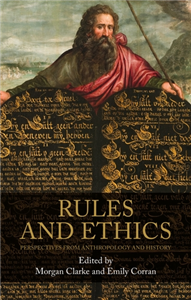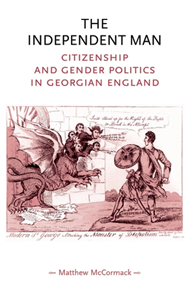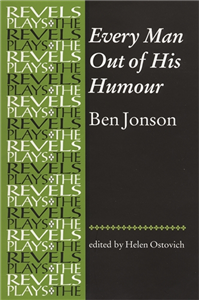Your Search Results
-
Promoted ContentHumanities & Social SciencesNovember 2023
Critical theory and human rights
From compassion to coercion
by David McGrogan
This book describes how human rights have given rise to a vision of benevolent governance that, if fully realised, would be antithetical to individual freedom. It describes human rights' evolution into a grand but nebulous project, rooted in compassion, with the overarching aim of improving universal welfare by defining the conditions of human well-being and imposing obligations on the state and other actors to realise them. This gives rise to a form of managerialism, preoccupied with measuring and improving the 'human rights performance' of the state, businesses and so on. The ultimate result is the 'governmentalisation' of a pastoral form of global human rights governance, in which power is exercised for the general good, moulded by a complex regulatory sphere which shapes the field of action for the individual at every turn. This, unsurprisingly, does not appeal to rights-holders themselves.
-
Promoted ContentHumanities & Social SciencesAugust 2021
Rules and ethics
Perspectives from anthropology and history
by Morgan Clarke, Emily Corran
This book investigates the pronounced enthusiasm that many traditions display for codes of ethics characterised by a multitude of rules. Recent anthropological interest in ethics and historical explorations of 'self-fashioning' have led to extensive study of the virtuous self, but existing scholarship tends to pass over the kind of morality that involves legalistic reasoning. Rules and ethics corrects that omission by demonstrating the importance of rules in everyday moral life in a variety of contexts. In a nutshell, it argues that legalistic moral rules are not necessarily an obstruction to a rounded ethical self, but can be an integral part of it. An extended introduction first sets out the theoretical basis for studies of ethical systems that are characterised by detailed rules. This is followed by a series of empirical studies of rule-oriented moral traditions in a comparative perspective.
-
 Trusted Partner
Humanities & Social SciencesJanuary 2012
Trusted Partner
Humanities & Social SciencesJanuary 2012The independent man
Citizenship and gender politics in Georgian England
by Matthew McCormack, Pamela Sharpe, Penny Summerfield, Lynn Abrams, Cordelia Beattie
'Independence' was an important ideal for men in Georgian England. In this period, however, the word meant much more than simply the virtues of self-sufficiency and impartiality. Most people believed that obligations absolutely compromised freedom and conscience, whereas 'independence' was associated with manly virtue and physical vigour. Fundamentally, the political world was thought to consist of 'independent men', exercising their consciences and standing up for the general good. As such, Georgians thought about political action and masculine virtue very differently to the ways in which we do today. In study, newly available in paperback, Matthew McCormack establishes the links between the histories of masculinity and politics, highlighting the centrality of 'manly' ideals in the political world and - conversely - the role of politics in the operation of gender ideology. ;
-
 Trusted Partner
Business, Economics & LawJuly 2024
Trusted Partner
Business, Economics & LawJuly 2024Act now
by Common Sense Policy Group, Kate Pickett, Danny Dorling, Richard Wilkinson
-
 Trusted Partner
Humanities & Social SciencesJanuary 2026
Trusted Partner
Humanities & Social SciencesJanuary 2026Humour, subjectivity and world politics
by Alister Wedderburn
-
 Trusted Partner
The ArtsNovember 2022
Trusted Partner
The ArtsNovember 2022In good taste
How Britain’s middle classes found their style
by Ben Highmore, Christopher Breward
In postwar Britain, journalists and politicians prophesised that the class system would not survive a consumer culture where everyone had TVs and washing machines, and where more and more people owned their own homes. They were to be proved entirely wrong. In good taste charts how class culture, rather than being destroyed by mass consumption, was remade from flat-pack furniture, Mediterranean cuisine and lifestyle magazines. Novelists, cartoonists and playwrights satirised the tastes of the emerging middle classes, and sociologists claimed that an entire population was suffering from status anxiety, but underneath it all, a world was being constructed out of duvets, quiches and mayonnaise, easy chairs from Habitat, white emulsion paint and ubiquitous well-scrubbed, second-hand pine kitchen tables. This was less a world of symbolic goods and more an intimate environment alive with new feelings and attitudes.
-
 Trusted Partner
Business, Economics & LawApril 2021
Trusted Partner
Business, Economics & LawApril 2021Trials of the self
by Elwin Hofman, Joseph Bergin, William G. Naphy
-
 Trusted Partner
PsychologyApril 2018
Trusted Partner
PsychologyApril 2018What is “Good” Dementia Care?
by Christoph Held
People with dementia experience their condition as a big change in which, for example, new events are not linked to existing experiences and wishes, thoughts, and actions can no longer be connected to each other. This kind of experience of the self, due to the intergative function of the brainbeing temporarily or permanently lost, is called dissociative self-experience. Based on this understanding of dementia, the author develops an approach to effectively understand and support people with dementia in everyday activities. Typical everyday situations and behaviours are presented and reflected on in a practical context.
-
 Trusted Partner
Literature & Literary StudiesSeptember 2008
Trusted Partner
Literature & Literary StudiesSeptember 2008Every Man Out of His Humour
Ben Jonson
by David Bevington, Helen Ostovich, Richard Dutton, Alison Findlay, Helen Ostovich
Despite its popularity when it first appeared in print in 1600, Every Man out of His Humour has never appeared as a single modern critical edition until now. The volume's introduction and annotations convey early modern obsessions with wealth and self-display by providing historical contexts and pointing out the continuity of those obsessions into modern life. The play is of interest because of its influence on the course of city comedy and its wealth of information about social relationships and colloquial language at the end of Elizabeth's reign. Jonson's experiments in generating theatrical meaning continued throughout his career, but Every Man out of His Humour - with its youthful vigour and extraordinary visualizations of the urban capacity for self-deceit - is a text that enriches the understanding of all the plays that come after it. ;
-
 Trusted Partner
Humanities & Social SciencesApril 2021
Trusted Partner
Humanities & Social SciencesApril 2021Critical theory and human rights
by David McGrogan, Darrow Schecter
-
 Trusted Partner
Humanities & Social SciencesSeptember 2021
Trusted Partner
Humanities & Social SciencesSeptember 2021A precarious equilibrium
Human rights and détente in Jimmy Carter's Soviet policy
by Umberto Tulli
Human rights and détente inextricably intertwined during Carter's years. By promoting human rights in the USSR, Carter sought to build a domestic consensus for détente; through bipolar dialogue, he tried to advance human rights in the USSR. But, human rights contributed to the erosion of détente without achieving a lasting domestic consensus.
-
 Trusted Partner
Trusted Partner
-
 Trusted Partner
Humanities & Social SciencesMarch 2010
Trusted Partner
Humanities & Social SciencesMarch 2010Negotiating sovereignty and human rights
International society and the International Criminal Court
by Sibylle Scheipers
Negotiating sovereignty and human rights takes the transatlantic conflict over the International Criminal Court as a lens for an enquiry into the normative foundations of international society. The author shows how the way in which actors refer to core norms of the international society such as sovereignty and human rights affect the process and outcome of international negotiations. The book offers an innovative take on the long-standing debate over sovereignty and human rights in international relations. It goes beyond the simple and sometimes ideological duality of sovereignty versus human rights by showing that sovereignty and human rights are not competing principles in international relations, as is often argued, but complement each other. The way in which the two norms and their relationship are understood lies at the core of actors' broader visions of world order. The author shows how competing interpretations of sovereignty and human rights and the different visions of world order that they imply fed into the transatlantic debate over the ICC and transformed this debate into a conflict over the normative foundations of international society. ;
-
 Trusted Partner
May 1994
Trusted Partner
May 1994Common-sense-Kompetenz
Überlegungen zu einer Theorie des »sympathischen« und »natürlichen« Meinens und Verstehens
by Helmuth Feilke
Wie ist das fast »selbstverständliche« Funktionieren menschlicher Kommunikation möglich angesichts bzw. trotz der enormen Kontingenz, die erstens die individuelle Konstruktivität menschlicher Wahrnehmung und Kognition, zweitens die Generativität der grammatischen Kompetenz und drittens die Komplexität hochvariabler Kontexte für das Meinen und Verstehen eröffnen? Wie kommt angesichts dieser Spielräume eine hinreichend gleichsinnige Koonentierung der sozialen Akteure in der Kommunikation zustande? Inwiefern ist unsere sprachliche Kompetenz genau dieser Problematik angepaßt und durch sie bestimmt? Die Common sense-Kompetenz ist der Versuch, auf diese Fragen eine sprachwissenschaftliche Antwort zu geben. Zugleich wird damit der Anspruch erhoben, im Blick auf die Fragen des Zusammenhangs von Kommunikation, Kognition und Kompetenz die Sprachtheorie in ihr Recht zu setzen.
-
 Trusted Partner
Humanities & Social SciencesMarch 2017
Trusted Partner
Humanities & Social SciencesMarch 2017Ephemeral vistas
by Paul Greenhalgh
The international exhibitions held around the world between 1851 and 1939 were spectacular gestures, which briefly held the attention of the world before disappearing into an abrupt oblivion, of the victims of their planned temporality. Known in Britain as Great Exhibitions, in France as Expositions Universelles and in America as World's Fairs, the genre became a self-perpetuating phenomenon, the extraordinary cultural spawn of industry and empire. Thoroughly in the spirit of the first industrial age, the exhibitions illustrated the relation between money and power, and revelled in the belief that the uncontrolled expression of that power was the quintessence of freedom. Philanthropy found its place on exhibition sites functioning as a conscience to the age although even here morality was inextricably linked to economic efficiency and expansion. Imperial achievement was celebrated to the full at international exhibitions. Nevertheless, most World's Fairs maintained an imperial element and out of this blossomed a vibrant racism. Between 1889 and 1914, the exhibitions became a human showcase, when people from all over the world were brought to sites in order to be seen by others for their gratification and education. In essence, the English national profile fabricated in the closing decades of the nineteenth century was derived from the pre-industrial world. The Fine Arts were an important ingredient in any international exhibition of calibre. This book incorporates comparative work on European and American empire-building, with the chronological focus primarily on the nineteenth and twentieth centuries, when these cultural exchanges were most powerfully at work.
-
 Trusted Partner
June 2010
Trusted Partner
June 2010Kinder in Deutschland 2010
2. World Vision Kinderstudie
by Herausgegeben von World Vision Deutschland e.V., World
-
 Trusted Partner
Business, Economics & LawMay 2005
Trusted Partner
Business, Economics & LawMay 2005The UN, human rights and post-conflict situations
by Nigel White, Dirk Klaasen
The United Nations is one of the largest providers of assistance in post-conflict situations in the world. This book considers the human rights standards applicable to the United Nations and applied by the United Nations in post-conflict situations, including East Timor, Kosovo and Afghanistan. It looks at legal principles, peace agreements, support of democracy, human rights protection, development and other forms of reconstruction with which the UN has become involved, including the grandly-named task of "state-building". It deals both with the obligation upon the UN to respect human rights in post-conflict situations, and the obligation upon the UN to ensure that human rights are respected by those in positions of power in post-conflict situations. Written by an internationally renowned list of contributors, this book will be of vital use to anyone studying conflict analysis, international relations, international law and the role of the United Nations on the world stage. ;
-
 Trusted Partner
Medicine
Trusted Partner
MedicineHumor in Psychiatric Care
by Jonathan Gutmann
How can humor be used to engage with and help people suffering from mental illness? This practical handbook explains the concept of humor in psychiatric treatment and sets out the case for employing it. The author outlines how nurses can assess who might benefit from the use of humor and for whom it would be out of place, and provides a toolkit of humorous interventions for daily nursing practice. Target Group: Practicing nurses, psychiatric nurses, care clowns
-
 Trusted Partner
November 2007
Trusted Partner
November 2007Kinder in Deutschland 2007
1. World Vision Kinderstudie
by Herausgegeben von World Vision Deutschland e.V.
-
 Trusted Partner
Humanities & Social SciencesMarch 2014
Trusted Partner
Humanities & Social SciencesMarch 2014Children's rights, Eastern enlargement and the EU human rights regime
by Ingi Iusmen, Dimitris Papadimitriou, Simon Bulmer, Andrew Geddes, Peter Humphreys
This book critically examines how and why Eastern enlargement has impacted on EU human rights policy. By drawing on the EU's intervention in human rights provision in Romania before 2007, it is demonstrated that the feedback effects of this intervention have led to the emergence of an EU child rights policy. Eastern enlargement has also raised the profile of Roma protection, international adoptions and mental health at the EU level. The impact of these developments has been further reinforced by the constitutional and legal provisions included in the Lisbon Treaty. It is argued that Eastern enlargement has led to the emergence of a more robust and well-defined EU human rights regime in terms of its scope and institutional clout. This book makes a substantial contribution to the scholarship on EU enlargement, Europeanisation and EU human rights policy by providing empirical evidence for the emergence and persistence of EU institutional and policy structures upholding human rights. ;
























